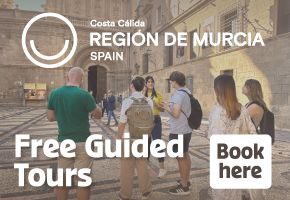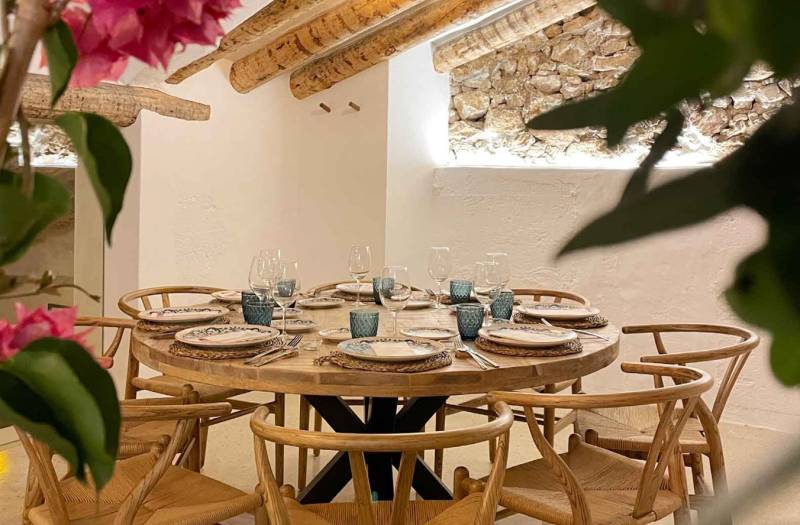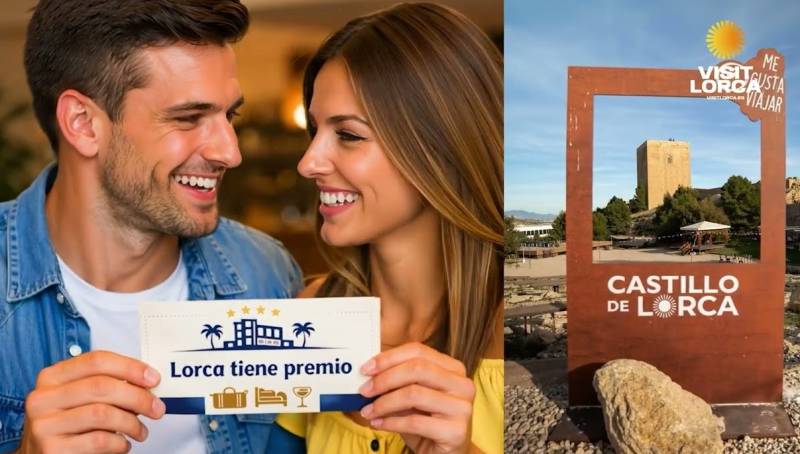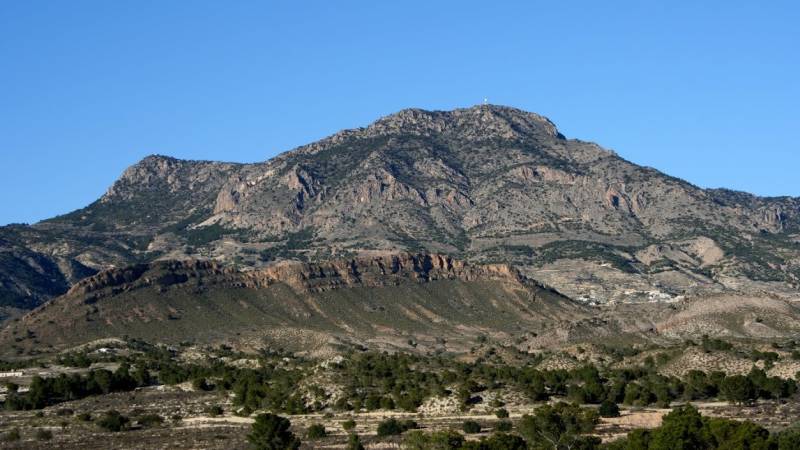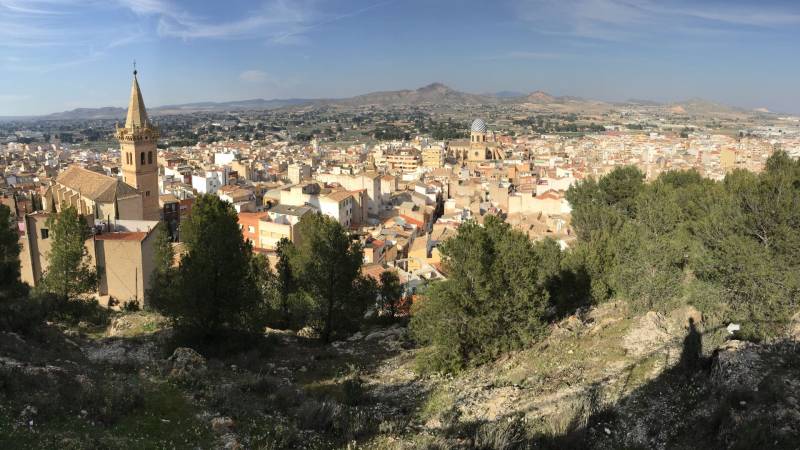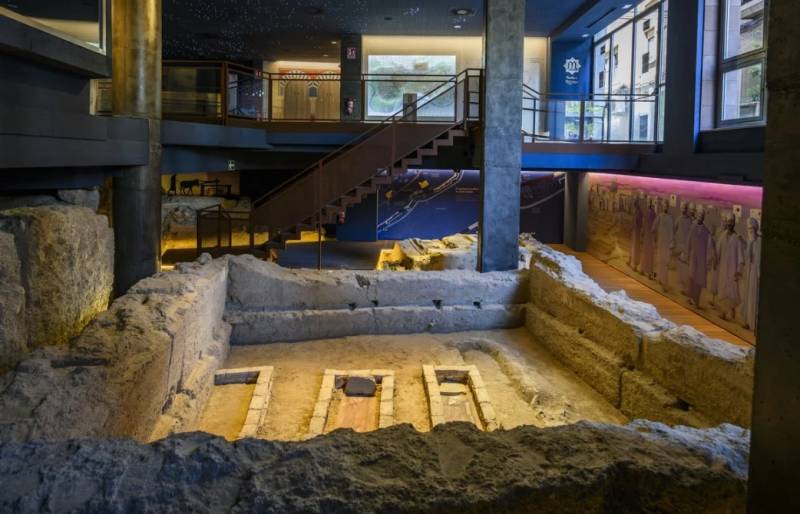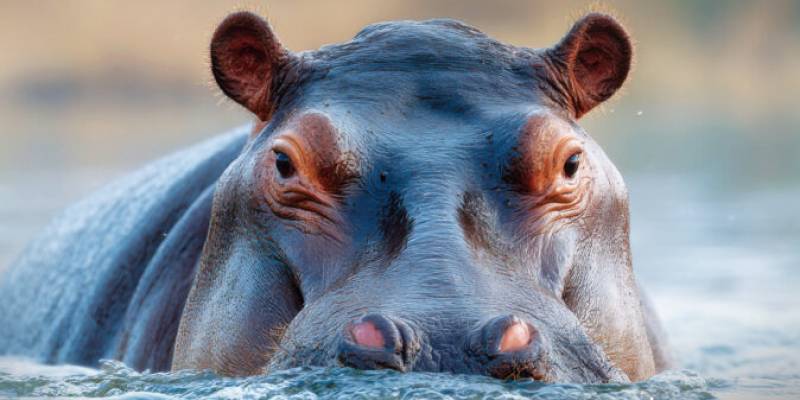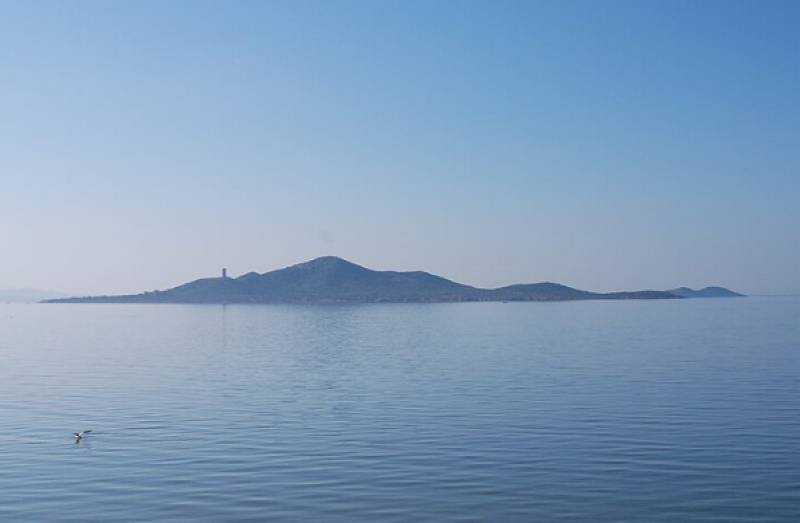

Guidelines for submitting articles to Mar Menor Golf Resort Today
Hello, and thank you for choosing Mar Menor Golf ResortToday.com to publicise your organisation’s info or event.
Mar Menor Golf Resort Today is a website set up by Murcia Today specifically for residents of the urbanisation in Southwest Murcia, providing news and information on what’s happening in the local area, which is the largest English-speaking expat area in the Region of Murcia.
When submitting text to be included on Mar Menor Golf Resort Today, please abide by the following guidelines so we can upload your article as swiftly as possible:
Send an email to editor@spaintodayonline.com or contact@murciatoday.com
Attach the information in a Word Document or Google Doc
Include all relevant points, including:
Who is the organisation running the event?
Where is it happening?
When?
How much does it cost?
Is it necessary to book beforehand, or can people just show up on the day?
…but try not to exceed 300 words
Also attach a photo to illustrate your article, no more than 100kb

Parque Minero La Unión
La Mina Agrupa Vicenta La Unión
NOTE: THE PARQUE MINERO IS CURRENTLY CLOSED ALTHOUGH LOCAL POLITICIANS ARE LOBBYING FOR IT TO BE REOPENED (date May 10, 2022)
Visitors to the Parque Minero go down 80 metres into a 4000 square metre mineworking, complete with glowing orange lake
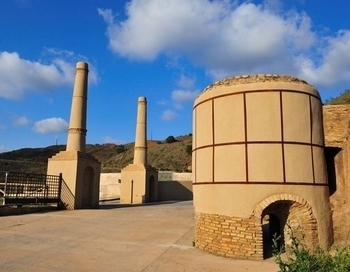 The Parque Minero in La Unión opened in the summer of 2010, following 7 years of work to create a unique visitor attraction which celebrates the mining history of La Unión.
The Parque Minero in La Unión opened in the summer of 2010, following 7 years of work to create a unique visitor attraction which celebrates the mining history of La Unión.
Externally, the park covers an area of 50,000 square metres, winding up through the folds of the Sierra Minera, the earth stained with the red and vivid orange tones which characterize the presence of the valuable and useful minerals, which have been mined in this area for thousands of years.
Its a perfect place to visit in the heat of a summers evening, starting inside the mine workings and moving back down the folds of the valley through the washing processes to the smelting areas below and down to the 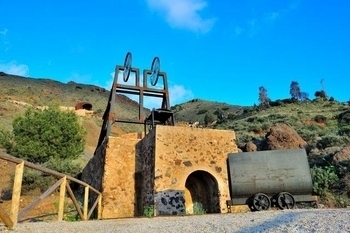 car park.
car park.
The route begins with an audiovisual presentation which explains a little about the history of the area and the men who worked these mines.
To help readers understand a little more about the area, an outline history of La Unión has been prepared, so if you´d like to read that, Click History of La Unión
Although mining was undoubtedly undertaken in prehistory as mankind began to develop the technology which permitted him to mine, smelt and form metalwork, mining in this area was at its peak during the era of Roman occupation. Cartagena was taken by the Romans in 209 BC, specifically because of its natural 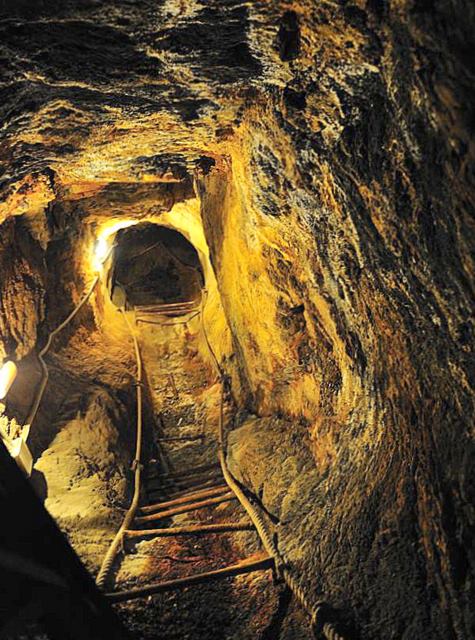 strategic port and rich mineral reserves, the Romans building a substantial city and trading port until the Roman Empire crumbled and fell in the fifth century AD. This area was heavily mined by the Romans, with more than 45,000 people documented as having been working in the mines at the height of Roman power, shipping lead, silver and other minerals across their vast empire from the port in Cartagena. Some of these can still be seen in the Cartagena archaeological museum in the form of lead ingots, recovered from vessels which sunk during their journey along the Mediterranean coastline, and although mining activity was minimal for several centuries following the disappearance of the Romans, the rich deposits provided work for tens of thousands right into the 20th century as the industrial revolution created a new demand for iron.
strategic port and rich mineral reserves, the Romans building a substantial city and trading port until the Roman Empire crumbled and fell in the fifth century AD. This area was heavily mined by the Romans, with more than 45,000 people documented as having been working in the mines at the height of Roman power, shipping lead, silver and other minerals across their vast empire from the port in Cartagena. Some of these can still be seen in the Cartagena archaeological museum in the form of lead ingots, recovered from vessels which sunk during their journey along the Mediterranean coastline, and although mining activity was minimal for several centuries following the disappearance of the Romans, the rich deposits provided work for tens of thousands right into the 20th century as the industrial revolution created a new demand for iron.
During this second period of intense extraction mining was controlled by several powerful families based for the main part in Cartagena, and most of the stunning modernist buildings remaining in the city were built with the sweat and labour of men working in the La Unión mines.
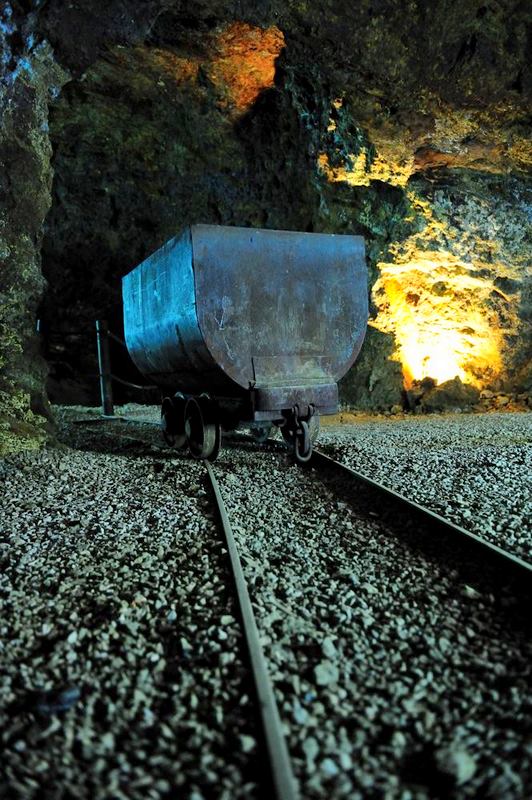 After viewing the video presentation a train takes visitors up the winding Camino del 33, the historical route which linked La Unión to Portman Bay, from whence minerals were shipped worldwide.
After viewing the video presentation a train takes visitors up the winding Camino del 33, the historical route which linked La Unión to Portman Bay, from whence minerals were shipped worldwide.
The route climbs up past man made mountains, sterile waste generated by the mining process, the machinery used for crushing, washing and smelting the lead once it was brought to the surface, all restored so that visitors can learn more about the processes involved in creating ingots or, pigs, of lead and the extraction of other minerals.
The train stops outside the Mina Agrupa Vicenta, although walkers are able to follow the route on foot to Portman bay if they feel so inclined, a separate excursion for another evening which is hard work but well worth the effort due to the fabulous views en-route.There is no charge to enter the Parque Minero on foot and walk up the Camino 33, so this route can be undertaken on foot at any time.
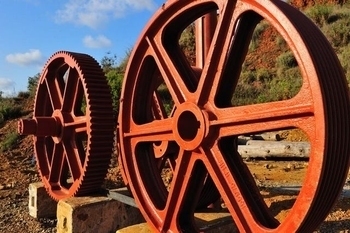 From here, visitors enter the star of this mining complex, the Mina Agrupa Vicenta, which was in use between 1869 and 1957 and covers an area 4,000 square metres below ground, with a vast complex of caves and mine workings open for the public to explore, plunging down underground to a depth of 80 metres below the surface.
From here, visitors enter the star of this mining complex, the Mina Agrupa Vicenta, which was in use between 1869 and 1957 and covers an area 4,000 square metres below ground, with a vast complex of caves and mine workings open for the public to explore, plunging down underground to a depth of 80 metres below the surface.
Impressive galleries reveal the extent of the mine workings, supported with pillars, up to 8 metres high in places, 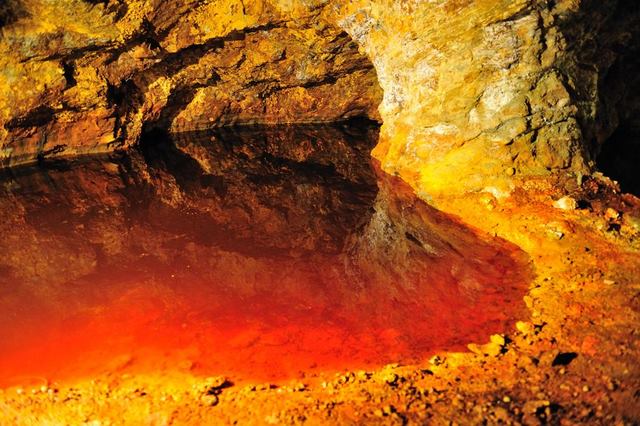 the centre holding a startling orange lake, the colour created by a chemical interaction and the quantity of pyrite in the surrounding rock. It really is a most extraordinarily impressive centrepiece and forms the backdrop for a small auditorium which has been created for flamenco performances.
the centre holding a startling orange lake, the colour created by a chemical interaction and the quantity of pyrite in the surrounding rock. It really is a most extraordinarily impressive centrepiece and forms the backdrop for a small auditorium which has been created for flamenco performances.
These mines were cut by hand, the rock shoveled by hand, pulled by children to the surface, blasted out from deep inside using straw fuses, dangerous work which often killed those lighting the fuses as rocks split amidst the explosion and rooves caved in on those below.
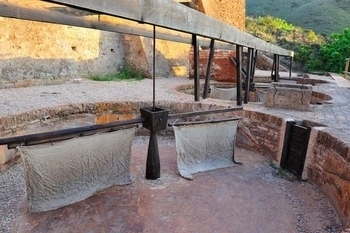 The workings are well lit, with clear walkways, atmospheric passageways and good visual presentations throughout, and are well supported structurally- there are no collapses these days, so dont worry, although those who suffer from claustrophobia are advised to choose another place to visit, and it can be uncomfortable for those with severe mobility problems as there are a number of steps to navigate.
The workings are well lit, with clear walkways, atmospheric passageways and good visual presentations throughout, and are well supported structurally- there are no collapses these days, so dont worry, although those who suffer from claustrophobia are advised to choose another place to visit, and it can be uncomfortable for those with severe mobility problems as there are a number of steps to navigate.
Its a very impressive place, and the joy of this as an attraction for tourists and visitors is that its interesting for the whole family to visit, with plenty to see, both inside the mine and out.
Practical information about visiting the Parque Minero, The Mining Park, at La Union
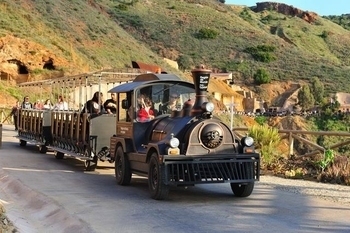 Visits are run in groups, due to the complexity of the mine, and the necessity to keep visitors together so nobody wanders off and gets lost. For this reason it is essential to book a visit. The tours are run in Spanish, but if English speaking visitors are booked onto the tour, an English speaking guide will be allocated to ensure both languages are covered, so booking is essential.
Visits are run in groups, due to the complexity of the mine, and the necessity to keep visitors together so nobody wanders off and gets lost. For this reason it is essential to book a visit. The tours are run in Spanish, but if English speaking visitors are booked onto the tour, an English speaking guide will be allocated to ensure both languages are covered, so booking is essential.
Please note, groups of 15 people are required for a visit to take place, so please book in advance as tours may not run if there are insufficient bookings.
Anybody wanting to walk the Route 33 can do so unaccompanied, or visit the external washing areas on foot, although the main reason for going to the park is to visit the Mine.
Disability Access.
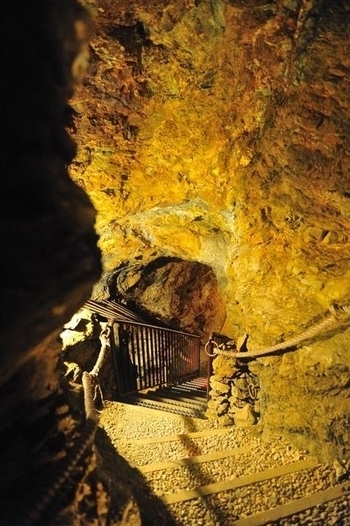 It is important to note that this is not a location for those with poor mobility. Inside the mine surfaces are uneven and visitors must walk up and down steps. Externally, the train winds up a hill and again, all the external facilities are on split levels and uneven surfaces, so wheelchair users would be unable to cope.
It is important to note that this is not a location for those with poor mobility. Inside the mine surfaces are uneven and visitors must walk up and down steps. Externally, the train winds up a hill and again, all the external facilities are on split levels and uneven surfaces, so wheelchair users would be unable to cope.
Complejo del Parque Minero, La Unión
Opening Times.
Summer ( 16th July to 14th October)
Tuesday-Sunday 10.00am -2pm and 6.00pm - 8.00pm
High Summer, from 15th July and during August, the evening visiting hours vary. The reception centre is open from 6pm to 8.30pm and evening visits for groups can be arranged between 8pm and 10pm by prior arrangement.
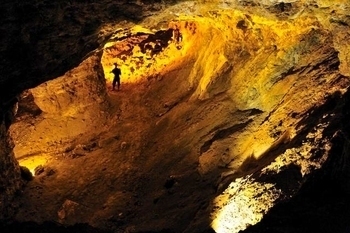 Winter ( 16th October to 15th July.)
Winter ( 16th October to 15th July.)
Tuesday to Sunday visits at 10.00am and 12 midday
Mondays closed.
English language guided visits are on Tuesday and Thursday, with PRIOR RESERVATION essential.
Allow an hour and 45 minutes for this visit
Group visits can be booked with an English language guide as solo groups with a minimum of 20 people at any time.
To book all visits, Call 968 002 140 during Park opening times.
The tourist office will help with more information and will also tie in your visit to the mines with a visit to other places in La Unión on request, call 968 541 614.
Email: reservas@parqueminerodelaunion.es
Please quote Murcia Today if making an enquiry: it helps to make sure we are sent information if something changes as the offices know our readers are finding information via this site.
Individual Prices
The tourist office will help with more information, call 968 541 614.
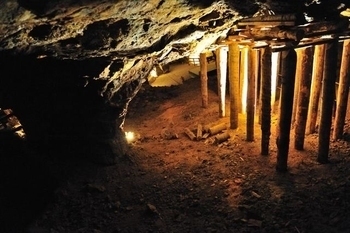 Combined tickets can be purchased which take visitors to the Parque Minero and the Matilde Mine. ( Click Matilde Mine.)
Combined tickets can be purchased which take visitors to the Parque Minero and the Matilde Mine. ( Click Matilde Mine.)
Adults 11.00 euros
Retired, students and children between 5 and 16, 8.25 euros
Under 5 years old 1.10 euros
Groups (Minimum 20 people) 7.10 euros
Groups of children, students or retirees, 5.50 euros per person ( Minimum 20 people for discount)
To book group visits call 902 52 00 14
The tourist office will help with more information, call 968 541 614.
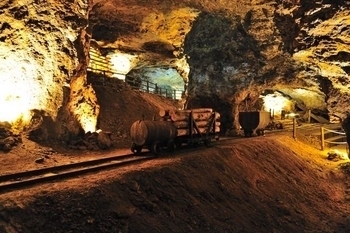 The new Parque Minero is located behind the beautiful old market hall. Heading into the centre of La Union it is well signposted, so cross the railway line and theres a big car parking area at the bottom of the hill.
The new Parque Minero is located behind the beautiful old market hall. Heading into the centre of La Union it is well signposted, so cross the railway line and theres a big car parking area at the bottom of the hill.
Weve put the map link on the Public marketplace, so look for the railway line on the map near marker E and the big area of open space nearby is where the Parque is located, click map
As you drive behind the Old market place, cross the railway track and bear around to the left. Youll find the entrance to the Parque Minero there.
Another interesting place to visit within the municipality is the Mina Matilde, a totally different style of mine which has an interesting interpretation centre.
It´s well worth visiting on its own as it is about a 20 minute drive from La Unión.
Click Matildes Mine Interpretation Centre La Unión.



